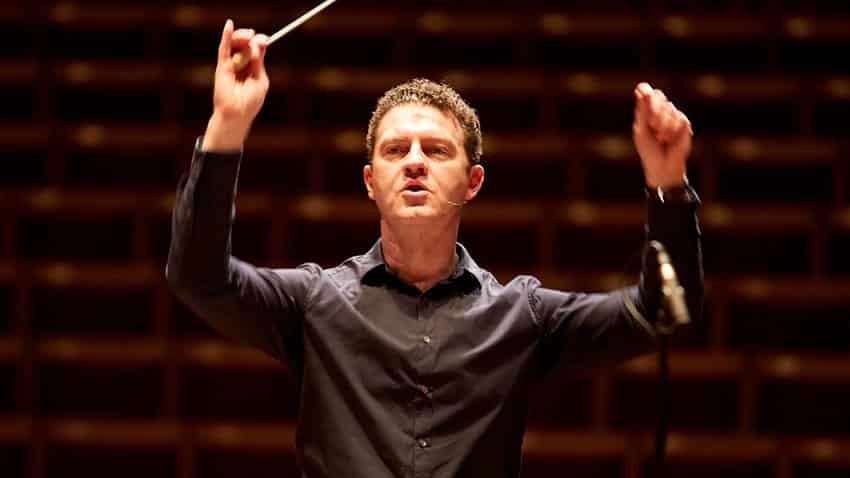
Brett Weymark OAM conducts the Sydney Philharmonia Choirs, has performed internationally in the most prestigious venues with top choirs and virtuosos, and has left his mark on everything from Bach to the score of Mad Max: Fury Road.
So as Sydney prepares for its third year of the COVID-19 pandemic, why is the city’s top choral mind returning to Gregorian chant and sacred music with his Sydney Festival show Night of the Soul?
“For lots of people in the choir, even if they’re not religious or spiritual, they find a sense of purpose in music. With Gregorian chant, it just takes you back to the sheer bare bones of what it is to come together and trust each other and breathe together,” Weymark told The Catholic Weekly.
Latin – but accessible
“The thing that I always find extraordinary is regardless of what you believe, the texts of these chants—there is always a way in.
“So the Ubi Caritas chant: where charity and love is, God exists. Now, God means different things to different people. You know, very much, the reason why it was chosen for the show is because of the isolation that we’ve all gone through, the lockdowns and various things like that.
“This idea that when we come together and experience kindness or charity, caritas, which means something more specific in the Catholic sense, there is a sense of renewal, of wholeness.”
The unique interface of chant
The enduring appeal of Gregorian chant for Weymark is that it’s a “human” artform intended to illuminate the texts of scripture, giving a unique interface between the technical aspects of singing and the beauty of the texts themselves.
“Of course chant was there to illuminate the text, but it was also there as a way of remembering long texts.
“It was sung before it was written down, for sure.
“In music nowadays we are very much bound to the written score.” In chant, the conductor can “throw away the score and make people listen … Actually the ear is far more intelligent than the eye.”
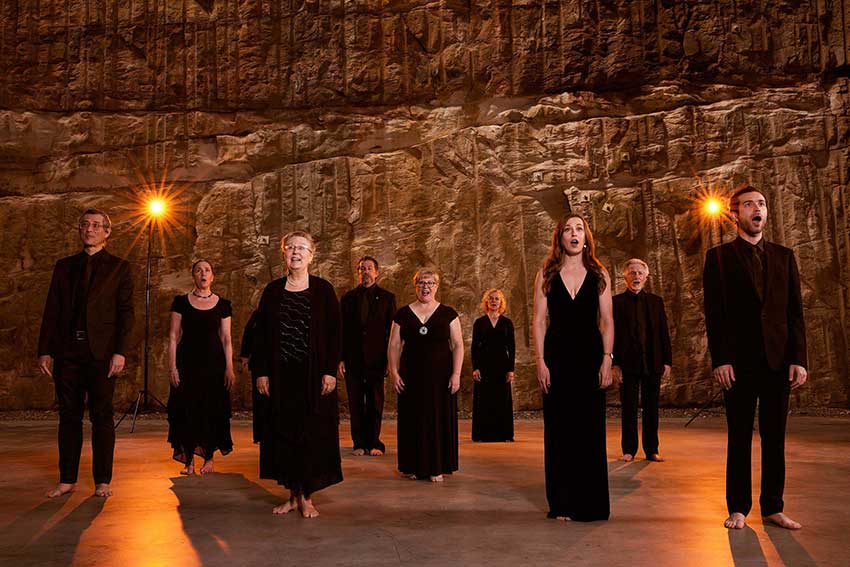
The beauty of neumes
Weymark lets his choir get a feel for the chants before introducing the notation, in the original square neumes, with all the “beautiful humanity” of handwritten scores. “It’s an amazing way to build a sense of ensemble,” Weymark adds. “It’s also extremely frightening because there’s nowhere to hide.
“You can’t really conduct chant, and I’ve told them I’m not going to conduct it! So they’ve got to listen to each other. They’ve got to trust each other. They’ve got to find a certain space.
“With every choir, you must make them sing in unison at some point.
“Actually unison singing is the hardest thing to do.”
Not just chant …
Night of the Soul will be performed by Weymark and the Sydney Philharmonia Choirs’ Chamber Singers from 20-22 January as part of the Sydney Festival.
In addition to chant, the program includes some well-known pieces, like Samuel Barber’s Agnus Dei, alongside a selection of contemporary “sacred” music: Arvo Pärt’s Spiegel im Spiegel, Eric Whitacre’s Nox Arumque and Lux Arumque and Ola Gjeilo’s Luminous Night of the Soul and Dark Night of the Soul, which both adapt stanzas from St John of the Cross and texts from the contemporary poet Charles Silvestri.
Whitacre and Gjeilo, two of the most-performed contemporary choral composers, both have a deep, unironic sense of sacredness in their music that puts them in continuity with chant.
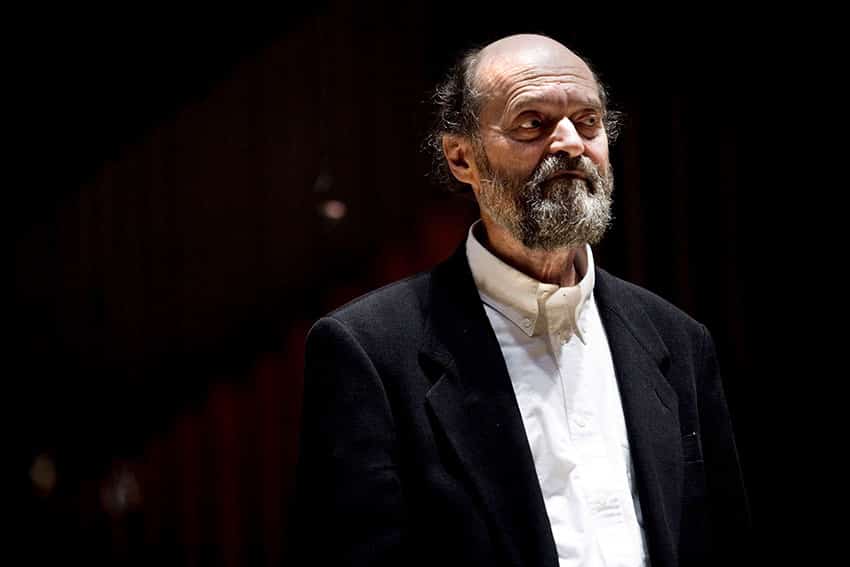
A new spiritual minimalism
“There’s a common voice amongst contemporary choral music at the moment, which is around this sort of spiritual minimalist style,” Weymark said.
Repetition, emotionalism, the use of silence, mood and texture rather than virtuosity, are some of the hallmarks of this new style—along with a sense that audiences and choirs are looking for something new from music.
These composers draw on medieval and Renaissance sacred music in a more or less self-conscious way; Pärt, Weymark said, “does crystallise it down to the most pure form”.
“If you look at them, the essential works of Arvo Pärt, they are triads, Gregorian chant with harmonic context against them.
That’s really how his music tends to work.”
From resistance to embrace
Whitacre, an American, said a decade ago that he had for his entire career “resisted setting texts that could be used in a liturgical context”.
Yet after a residence at Cambridge university in 2010, Whitacre “began to see the deep wisdom in the liturgical service”.
“I found myself suddenly open to the history and the beauty of the poetry, and it was the single word Alleluia, ‘praise God’, that most enchanted me.”
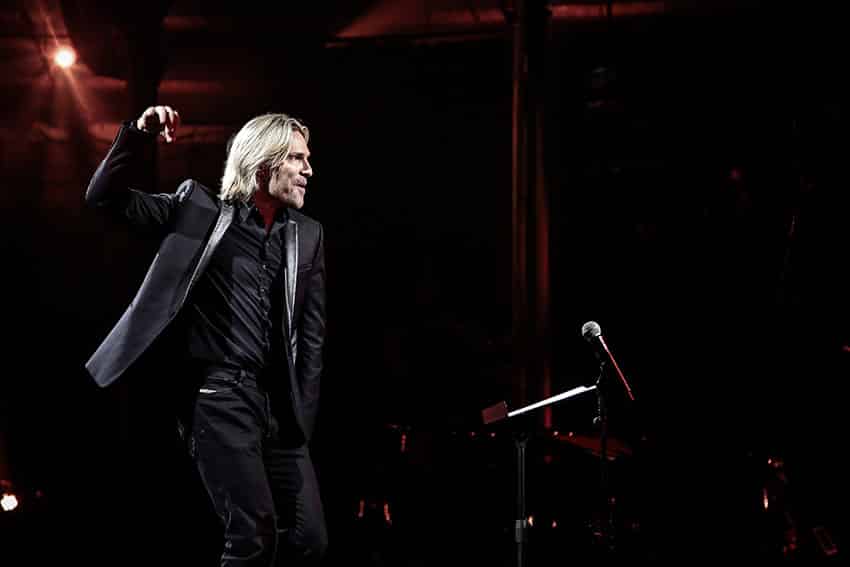
A sea-change in art
After the dissonance of modernism, and the ironic and self-referential period of postmodernism, the “spiritual minimalism” of these contemporary composers represents an enormous shift for composers, performers and audiences alike.
Gjeilo expresses it most clearly in a reflection on his Sunrise Mass, a 2007 composition that sits somewhere between Mass setting and film score.
“In a great deal of avant garde art, the goal seems to be to stay in the conflict itself, which to me becomes a way of just inflicting the listeners with our own neurosis,” the Norwegian composer said.
A hunger for transcendence
“A lot of art pushed audiences away for some time. I think people naturally and instinctively want to experience transcendence, resolution and the feeling of redemption, joy and peace that the resolving of discord can yield.”
While these views have led some to judge Gjeilo and the movement of which he is a part as “unserious” music, Weymark disagrees, saying the shift in choral composition and performance is meeting a deep need among both performers and audiences.
“Composers are responding to what’s actually being a bit of resurgence in choirs,” he said. “People are joining choirs for something that we didn’t talk about much, 20, 25 years ago.
A new life for choral music
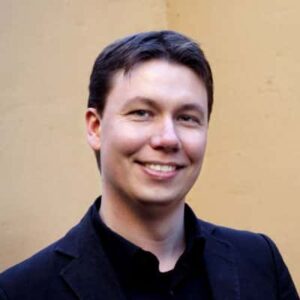
“We were all talking about the musical benefits of it. But now, actually, more and more people are coming to choirs for that real sense of connection, to turn off, to be unplugged.
“The reality is, all the friends that I have who are really close in my life I’ve sung with. You build real bonds with these people in a way that I think anyone who hasn’t sung in a choir probably can’t really quite understand.”
Composers like Gjeilo, Whitacre and Arvo Pärt are enabling this desire for sincerity, communion, closeness and trust in their compositions.
Meeting psychological and spiritual needs
“More and more composers explore these cluster chords, things like that which do actually involve two parts being very close together harmonically, feeding off each other, not being quite on the same note, but very close to the same thing,” Weymark said.
“That involves incredible hearing and incredible trust, tuning and things like that.”
This deep sense that choirs are meeting the psychic and spiritual needs of performers is very much on display in the current performance, Weymark insists.
This is the third year the choir has attempted to stage a performance of chant, after previous iterations of the show were cancelled.
Enthusiastic performers
“You sometimes take the commitment of the singers for granted, but really, the pull to put this performance on is really coming from the singers,” Weymark said.
“Day by day we’re wondering whether this performance will go ahead—testing the choir every single day, praying that every single day we will have the singers in the room that we need.
“If we weren’t given trials, if we weren’t given tension, if we weren’t given some sort of dissonance or conflict in our life, we would never grow.
“And if that’s not a metaphor for life, I don’t know what it is.”
Related
